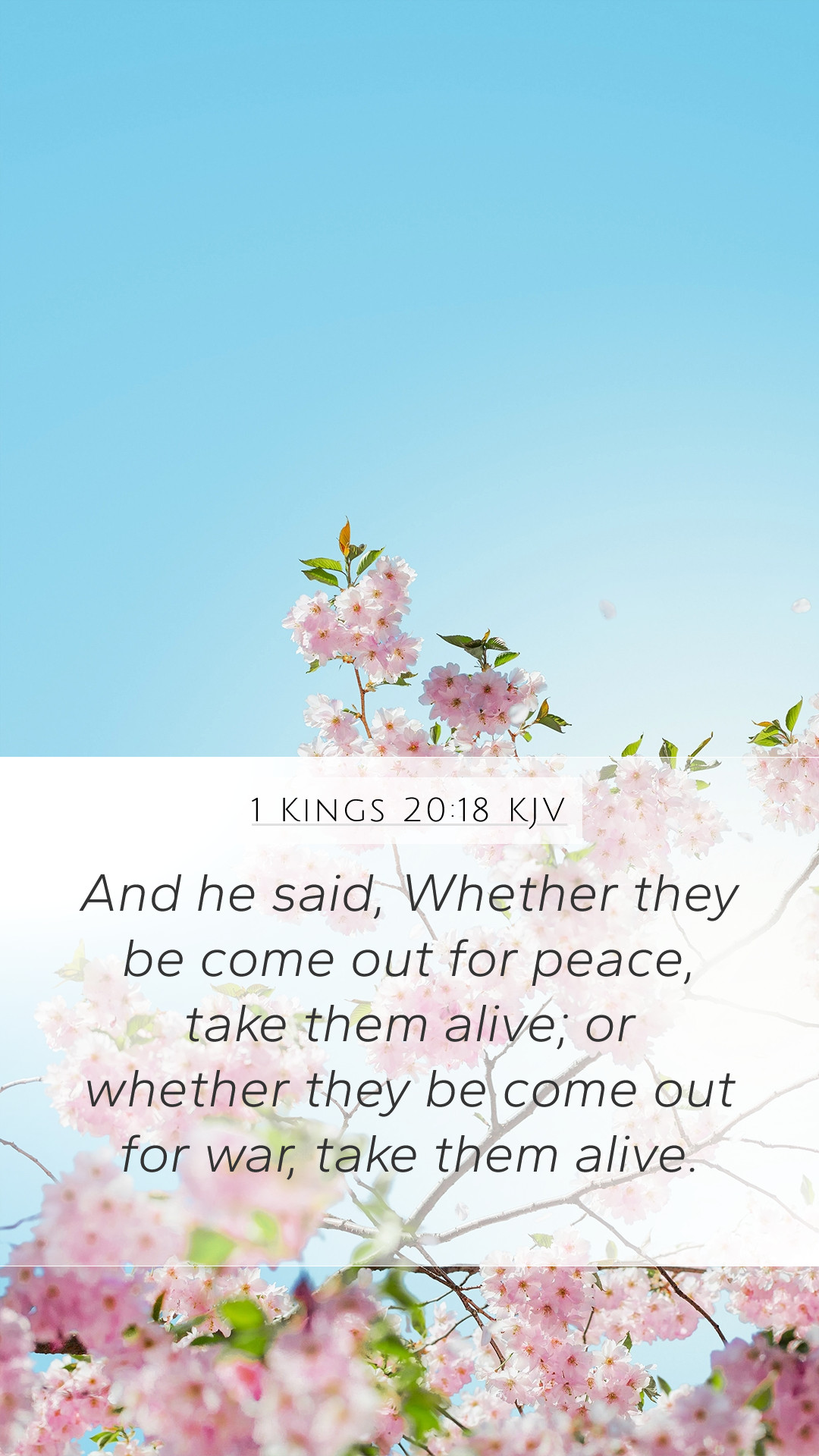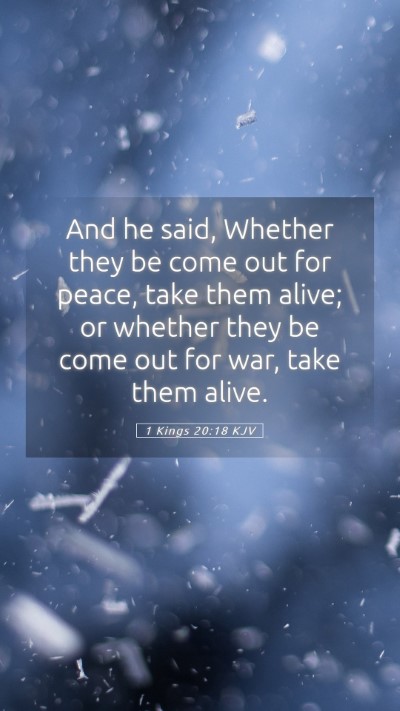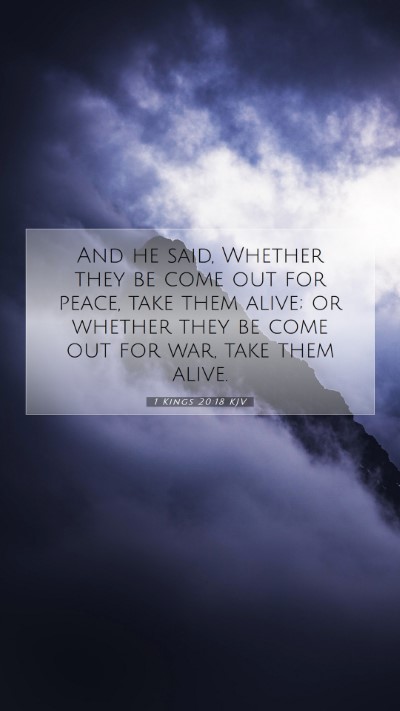Understanding 1 Kings 20:18
Bible Verse: “And he said, If they be wise, they will come out for peace: but if they be war, take them alive.” - 1 Kings 20:18
Bible Verse Meaning
This verse from 1 Kings 20:18 conveys a significant message regarding the nature of conflict and diplomacy. In the context of King Ahab's confrontation with Ben-Hadad, king of Syria, the phrase indicates a strategic approach to dealing with potential adversaries.
Bible Verse Interpretations
- Matthew Henry's Commentary: Henry emphasizes the prudence of seeking peace in adversarial situations. Ahab's response reflects a belief that wise leaders will choose negotiation over warfare, suggesting the importance of diplomacy in governance.
- Albert Barnes' Notes: Barnes notes that the king assesses the intention of his opponents—whether they are willing to negotiate peace or escalate to conflict. The phrase “take them alive” symbolizes the idea of subduing enemies without bloodshed if possible.
- Adam Clarke's Commentary: Clarke discusses the direct implications of this verse on wisdom in leadership. He states that wise rulers will recognize the value of peace and act accordingly, while foolish ones would provoke opportunities for war.
Bible Study Insights
This verse not only illustrates the historical context of conflict but also brings forth themes of wisdom, leadership, and the importance of understanding one’s opponents. In the broader narrative of 1 Kings, it emphasizes the cultural expectation for kings to navigate relationships with other nations judiciously.
Understanding Scripture
To fully grasp the implications of 1 Kings 20:18, one must consider the historical backdrop of Israel and its relationships with neighboring kingdoms. This verse stands as a reminder that wise leaders prioritize peace and consider the consequences of their actions on their people.
Cross References
- Proverbs 16:7: “When a man's ways please the Lord, he maketh even his enemies to be at peace with him.”
- James 3:17: “But the wisdom that is from above is first pure, then peaceable, gentle, and easy to be entreated, full of mercy and good fruits, without partiality, and without hypocrisy.”
- Matthew 5:9: “Blessed are the peacemakers: for they shall be called the children of God.”
Biblical Exegesis of 1 Kings 20:18
The exegesis of this verse enriches our understanding by examining the cultural context of ancient Israel. Leaders like Ahab faced significant external pressures and threats. This verse illustrates Ahab's desire to assess the situation and determine whether conflict or collaboration was the more prudent path.
Application of 1 Kings 20:18
In contemporary settings, the application of this biblical principle encourages individuals and leaders to promote peace and reconciliation over conflict. It challenges us to consider our responses in times of adversity and to seek wisdom in our dealings with others.
Conclusion
1 Kings 20:18 serves as an instructive guide not only for understanding the dynamics of ancient conflicts but also for encouraging peace in our modern lives. Through careful examination and reflection on this verse, one gains insights applicable in various aspects of personal and communal relationships.
Additional Resources for Bible Study
- Bible study groups focused on conflict resolution.
- Online Bible study courses that explore Old Testament wisdom literature.
- Bible study guides that delve into the political history of the Israelites.


